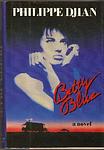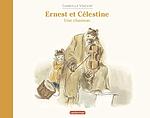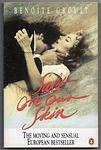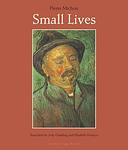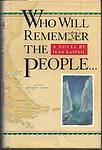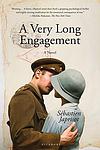The Greatest French "Fiction" Books Since 1980
Click to learn how this list is calculated.
This list represents a comprehensive and trusted collection of the greatest books. Developed through a specialized algorithm, it brings together 273 'best of' book lists to form a definitive guide to the world's most acclaimed books. For those interested in how these books are chosen, additional details can be found on the rankings page.
Genres
Countries
Date Range
Reading Statistics
Click the button below to see how many of these books you've read!
Download
If you're interested in downloading this list as a CSV file for use in a spreadsheet application, you can easily do so by clicking the button below. Please note that to ensure a manageable file size and faster download, the CSV will include details for only the first 500 books.
Download-
1. The Lover by Marguerite Duras
"The Lover" is a poignant exploration of forbidden love, power dynamics, and colonialism. Set in 1930s French Indochina, it tells the story of a tumultuous and passionate affair between a 15-year-old French girl and her wealthy, older Chinese lover. The narrative delves into the complexities of their relationship, the societal norms they defy, and the inevitable heartbreak that follows. The protagonist's struggle with her family's poverty and her mother's mental instability further complicates the story, making it a compelling exploration of love, desire, and societal constraints.
-
2. The Elementary Particles by Michel Houellebecq
"The Elementary Particles" is a provocative novel that explores the lives of two half-brothers, one a molecular biologist and the other a disenchanted teacher, against the backdrop of late 20th-century France. The narrative delves into their personal struggles and emotional turmoil, resulting from their dysfunctional upbringing by a self-absorbed, hedonistic mother. Throughout the novel, the author uses their stories to critique contemporary society, touching on themes such as sexual liberation, consumerism, and the decline of traditional values. The book also delves into the implications of scientific advancements, particularly in the field of molecular biology.
-
3. Platform by Michel Houellebecq
"Platform" is a provocative novel that explores the intersections of sex, business, and terrorism. The protagonist, a middle-aged man working in the French Ministry of Culture, embarks on a journey to Thailand after the death of his father. While there, he falls in love with a travel executive and they start a business capitalizing on sex tourism. However, their venture is violently disrupted by an extremist group, leading to tragic consequences. The novel is a critique of Western consumerism and a commentary on the clash between Western and Islamic cultures.
-
4. Suite Française by Irène Némirovsky
"Suite Française" is a two-part novel set during the early years of World War II in France. The first part, "Storm in June," follows a group of Parisians as they flee the Nazi invasion. The second part, "Dolce," shows life in a small French village under German occupation. The novel explores themes of love, loss, and survival, and provides a unique perspective on life in France during the war. The book was written during the war but was not discovered and published until many years later.
-
5. The First Man by Albert Camus
"The First Man" is a semi-autobiographical novel that explores the life of a man named Jacques Cormery, who grows up in poverty in Algeria, loses his father at a young age, and struggles with his relationship with his illiterate mother. The narrative delves into themes of identity, memory, and the human condition, as Jacques attempts to understand his past and his father's life, while simultaneously grappling with the harsh realities of colonial Algeria. Despite the challenges, Jacques remains determined to rise above his circumstances through education and personal growth.
-
6. Whatever by Michel Houellebecq
"Whatever" is a satirical novel that explores the life of a depressed and disillusioned computer programmer working for a software company in Paris. The protagonist's life is characterized by his cynicism and indifference towards his job, his failed relationships, and society at large. His only relief comes from his philosophical musings about life and the human condition. The novel is a bleak critique of modern society and the isolation and alienation brought about by technology and capitalism.
-
7. Betty Blue: The Story of a Passion by Philippe Djian
Betty Blue: The Story of a Passion is a tragic love story set in rural France. The novel follows the passionate and tumultuous relationship between a handyman and a free-spirited, mentally unstable woman named Betty. As their relationship deepens, Betty's mental health deteriorates, leading to a series of dramatic and heartbreaking events. The story is a raw and poignant exploration of love, mental illness, and the devastating consequences of passion.
-
8. Childhood by Nathalie Sarraute
"Childhood" is a memoir that delves into the fragmented memories of the author's early years, exploring the complexities of growing up and the formation of identity. Through a series of vignettes, the narrative captures the nuanced emotions and experiences of a young girl navigating her way through the challenges of family dynamics, societal expectations, and self-discovery. The author employs an innovative literary style, characterized by introspection and a stream-of-consciousness approach, to reflect on the elusive nature of memory and the ways in which our childhood experiences shape who we become.
-
9. Ernest And Celestine by Gabrielle Vincent
"Ernest And Celestine" is a heartwarming children's book about an unlikely friendship between a bear named Ernest and a young mouse named Celestine. Despite societal expectations and prejudices, the two form a deep bond and defy the norms of their respective worlds. Through their adventures and challenges, they teach readers the importance of acceptance, friendship, and the power of love.
-
10. L'amour, La Fantasia by Assia Djebar
"L'amour, La Fantasia" is a powerful and deeply personal exploration of the complex relationship between language, history, and identity. Through a blend of memoir, fiction, and historical analysis, the author delves into her own experiences as an Algerian woman, tracing the intertwined narratives of colonialism, feminism, and cultural heritage. With poetic prose and a profound sense of empathy, the book offers a poignant reflection on the struggles and triumphs of women in Algeria, ultimately celebrating the resilience and power of female voices.
-
11. Mamy Wata Et Le Monstre by Veronique Tadjo
"Mamy Wata Et Le Monstre" by Veronique Tadjo is a captivating tale that explores the relationship between humans and nature. Set in a coastal village, the story follows the adventures of a young girl named Mamy Wata, who discovers a mysterious monster wreaking havoc on her community. As she embarks on a journey to confront the monster, Mamy Wata learns valuable lessons about the importance of harmony and respect for the environment. With its vivid imagery and thought-provoking narrative, this book serves as a reminder of the delicate balance between humans and the natural world.
-
12. The Elegance of the Hedgehog by Muriel Barbery
The novel is a profound contemplation of life as seen through the eyes of two female protagonists: a 54-year-old concierge and a precocious 12-year-old girl, both living in the same upscale Parisian apartment building. The concierge, who conceals her intelligence and passion for literature and philosophy from the wealthy tenants, and the girl, who plans to commit suicide on her 13th birthday due to her disillusionment with the world, form an unlikely friendship. Their lives are forever changed when a wealthy Japanese man moves into the building.
-
13. Desert by J. M. G. Le Clezio
"Desert" is a sweeping narrative that spans across time and continents, telling the story of a young nomadic woman from the North African desert and her tribe's struggle against the encroaching forces of modernization and colonialism. Intertwined with her tale is the story of a descendant living in France, grappling with his own sense of identity and belonging. The novel paints a vivid picture of cultural erosion and the loss of traditional ways of life, while also exploring themes of resilience, memory, and the enduring connection to one's heritage amidst the relentless march of progress and change.
-
14. Hotel Splendid by Marie Redonnet
The book unfolds within the walls of a dilapidated hotel managed by three generations of women, each struggling with their own burdens and secrets. The protagonist, a young woman, tirelessly works to keep the establishment afloat despite its decline, facing a constant battle against the encroaching sand that threatens to engulf the building and the nearby sea that is slowly receding. Her efforts are compounded by the needs of her aging grandmother and sickly mother, as well as the demands of the few odd guests who still visit the hotel. The narrative is a haunting exploration of isolation, perseverance, and the weight of familial obligations, set against a backdrop of inevitable decay and the passage of time.
-
15. L'enchanteur by René Barjavel
The book is a reimagining of the Arthurian legends, focusing on the figure of Merlin the Enchanter. It delves into the life and role of Merlin, exploring his powers, his love for the Lady of the Lake, and his involvement in the fates of the legendary characters of King Arthur, Guinevere, Lancelot, and the Knights of the Round Table. The narrative weaves a tale of magic, love, and destiny, as Merlin tries to navigate the complex web of human emotions and political intrigue, while attempting to fulfill his own prophecies and maintain the balance between the forces of good and evil.
-
16. Salt On Our Skin by Benoîte Groult
The novel explores the passionate and tumultuous love affair between a Parisian intellectual and a Breton fisherman, which spans decades and continents. Despite their vastly different lives and backgrounds, the protagonists are drawn together by an irresistible attraction and a profound connection that defies societal norms and personal circumstances. Their intermittent encounters are marked by intense emotion and physical desire, as they navigate the complexities of love, longing, and the sacrifices they must make to remain true to themselves and each other. The story delves into themes of feminism, sexuality, and the enduring nature of love.
-
17. Small Lives by Pierre Michon
The book is a profound exploration of the rural French landscape and the lives of those who inhabit it, delving into the biographies of several characters from the 19th and 20th centuries. Through a series of interconnected stories, the narrative weaves a tapestry of human experiences, reflecting on themes of obscurity, the passage of time, and the search for meaning. The author's lyrical prose and deep understanding of the human condition paint a vivid picture of small lives that resonate with universal truths, revealing the extraordinary within the seemingly ordinary and the enduring impact of our brief existence on the world.
-
18. Leo Africanus by Amin Maalouf
This historical novel follows the life of a real-life Andalusian-born traveler of the 16th century, who is captured by Christian pirates and presented as a gift to the Pope. Renamed after the pontiff, he becomes a respected scholar and diplomat, navigating the complex cultural and religious divides of the Mediterranean world. Throughout his journeys, which take him from his birthplace in Granada to Fez, Timbuktu, Constantinople, and Rome, he witnesses the tumultuous events of his time, including the fall of Granada and the rise of the Ottoman Empire. His story is one of identity, belonging, and the universal quest for knowledge and understanding amidst a backdrop of conflict and change.
-
19. Who Will Remember The People... by Jean Raspail
"Who Will Remember The People..." is a poignant narrative that delves into the history and demise of a fictional South American indigenous tribe. The book explores the themes of cultural extinction, colonialism, and the inevitable march of modernity as it tells the story of the last members of this tribe, their struggles to preserve their way of life, their memories, and their identity in the face of external pressures and internal decay. Through its evocative prose, the novel serves as a meditation on the loss of ancient traditions and the often-unseen human cost of progress.
-
20. Riwan, Ou Le Chemin De Sable by Ken Bugul
"Riwan, Ou Le Chemin De Sable" by "Ken Bugul" is a compelling novel that follows the life of Riwan, a young woman who embarks on a journey of self-discovery. Set in Senegal, the book delves into themes of identity, cultural clashes, and the challenges faced by African women in a patriarchal society. Through Riwan's personal experiences and encounters with different people, the novel explores the complexities of love, desire, and the pursuit of happiness. It is a poignant and thought-provoking story that offers a unique perspective on African society and the resilience of its people.
-
21. L'acacia by Claude Simon
The novel is a complex and fragmented exploration of memory and war, weaving together the personal and historical experiences of a soldier who, after surviving the battlefields of World War I, embarks on a journey to reclaim the body of his brother killed in action. As the narrative shifts across time and space, it delves into the soldier's recollections of his childhood, his experiences during the war, and the broader impacts of conflict on individuals and society. The book's non-linear structure and rich, descriptive language challenge the reader to piece together the story, reflecting the disorienting and enduring effects of war on the human psyche.
-
22. Out Of The Dark by Patrick Modiano
In "Out of the Dark," the narrative unfolds around a man's introspective journey into his past, where he reflects on a transient and intense romance with a mysterious woman named Jacqueline. The story is set against the backdrop of post-war Paris, a city that mirrors the protagonist's feelings of dislocation and search for identity. As he revisits old haunts and recalls the enigmatic figures from his youth, the man grapples with the ephemeral nature of memory and the elusive quest for a sense of belonging. The novel weaves a haunting tale of love, loss, and the shadows that linger long after the people and moments have vanished into the dark recesses of time.
-
23. Empire Of The Ants by Bernard Werber
In this novel, readers are plunged into a fascinating and complex world beneath their feet, where an ant civilization thrives with its own sophisticated society, technology, and culture. The story intertwines the lives of these ants with the human world, particularly through the experiences of a family that inherits a mysterious apartment in Paris, which hides secrets linked to the ant empire. As the narrative unfolds, the book explores themes of coexistence, the nature of intelligence, and the intricate balance of ecosystems, challenging the reader to consider the world from an entirely different perspective and to question humanity's place within the grand scheme of life.
-
24. A Very Long Engagement by Sebastien Japrisot
The novel is a poignant exploration of love and perseverance set against the backdrop of World War I. It follows a young Frenchwoman who refuses to accept the official story that her fiancé has died on the battlefield. Despite being told he was executed for self-mutilation to escape military service, along with four other condemned soldiers, she embarks on a relentless quest to discover the truth. Her journey reveals a tangled web of deceit, cover-ups, and unexpected alliances, as she holds onto hope that her beloved is still alive. Through her unwavering determination, the narrative delves into the horrors of war and the enduring power of love.
-
25. All The World's Mornings by Pascal Quignard
The book is a historical novel that delves into the life of the 17th-century French composer and violist Monsieur de Sainte Colombe and his relationship with his two daughters, as well as the famous musician Marin Marais. After the death of his wife, Sainte Colombe retreats into his music and his garden, seeking solace and meaning in his solitary existence. His passion for music leads him to reject the court's opulence and the advances of society. The narrative explores themes of artistry, mentorship, and the search for perfection as it follows the complex dynamics between the reclusive Sainte Colombe, his protégé Marais, and the haunting presence of the past that reverberates through their music.
Reading Statistics
Click the button below to see how many of these books you've read!
Download
If you're interested in downloading this list as a CSV file for use in a spreadsheet application, you can easily do so by clicking the button below. Please note that to ensure a manageable file size and faster download, the CSV will include details for only the first 500 books.
Download





